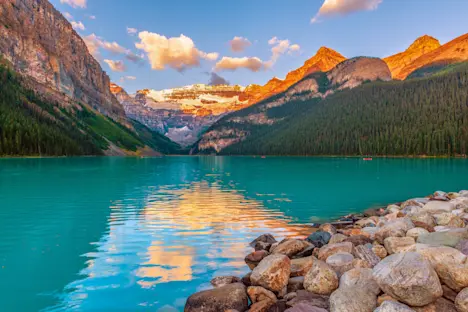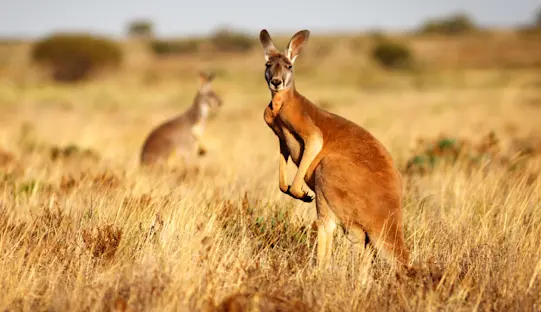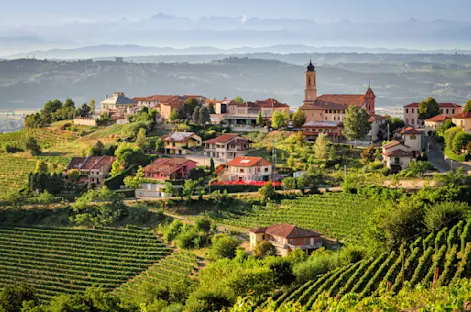Videos & Webinars
Join us on a soul-stirring journey through the realm of the polar bear as we follow the experiences of Nat Hab guests, Expedition Leaders and a remarkable WWF scientist during a trip to Churchill, Manitoba—the Polar Bear Capital of the World. Learn how the power of conservation travel can help protect a threatened species like polar bears for generations to come.
VIDEO | Photographing Wild Polar Bears in Churchill, Manitoba with Nat Hab
It's a bucket-list shot for any wildlife photographer: the mighty polar bear. And the best time and place on the planet to photograph them is each fall in Churchill, Manitoba. Here, hundreds of wild polar bears gather on the tundra awaiting the sea ice to freeze over Hudson Bay so they can begin hunting for seals. Nat Hab's small-group polar bear Photo Expeditions offer rare and intimate encounters with the King of the Arctic—while helping protect these apex predators and their Arctic ecosystem.
VIDEO | Tour Nat Hab's Exclusive Polar Rover
Witness the largest gathering of wild polar bears on Earth from the comfort and safety of Nat Hab’s custom Polar Rovers. These purpose-built tundra vehicles are designed to carry you safely and comfortably into the Arctic wilderness of Churchill, Manitoba. With both indoor and outdoor viewing locations, a window seat for everyone, an advanced elite suspension system for a smooth ride, and—that's right—a flush toilet aboard, our Polar Rovers are the optimal way to encounter the King of the Arctic!
VIDEO | Polar Bear Country
Can polar bears and people coexist in the "Polar Bear Capital of the World"? Find out what it's like to live with wild bears from the inspiring community members of Churchill, Manitoba, a remote frontier town on the edge of Canada's Hudson Bay. Here hundreds of polar bears gather each fall, waiting for the sea ice to form so they can start hunting seals.
VIDEO | The Churchill Polar Bear Experience
See the "King of the Arctic" in Churchill, Manitoba—the Polar Bear Capital of the World! Each fall, hundreds of polar bears gather along Canada's Hudson Bay, waiting for the sea ice to form and their seal-hunting season to begin. Guided by expert naturalists, our small-group nature adventures get you closer to wild polar bears, in greater comfort and safety, than anywhere else on Earth.
VIDEO | Close Encounters with Churchill’s Polar Bears – A Conservation Travel Experience
Join us on a soul-stirring journey through the realm of the polar bear as we follow the experiences of Nat Hab guests, Expedition Leaders and a WWF scientist on a trip to Churchill, Manitoba—the Polar Bear Capital of the World. Learn how the power of conservation travel can help protect a threatened species like polar bears for generations to come.
VIDEO | Polar Rovers: The Best Way to See Wild Polar Bears
Safely view polar bears in their wild tundra habitat near Churchill, Manitoba—the Polar Bear Capital of the World—aboard Nat Hab's exclusive Polar Rovers. Discover how these custom tundra vehicles will elevate your bear-watching experience.
VIDEO | Remember When?
Remember when you were young? Did you play outside? Did you explore? Children have an amazing sense of wonder when they're immersed in nature. Many of us tend to lose it as adults. But when you meet the polar bears of Churchill, it comes flooding back. When you watch this short video, you’ll get a feel for the childlike wonder that a polar bear encounter in Churchill offers.
WEBINAR | Sea Ice Survival: The Winter World of Polar Bears
As winter returns to the Arctic, polar bears venture back onto the sea ice—the foundation of their feeding and survival strategy. Expedition Leader Eleanor Edye offers an in-depth look at how polar bears navigate the coldest months of the year, from hunting seals to conserving energy in extreme conditions. Learn why sea ice is a critical winter habitat and how the rest of a polar bear’s year unfolds when the ice disappears. Plus, get inspired to see polar bears in the wild on our Churchill adventures!
WEBINAR | A Guide’s Life: Bears & Belugas with Churchill Expedition Leader Kristina Disney
From sparring polar bears and gregarious beluga whales to the glow of the northern lights, Canadian Expedition Leader Kristina Disney has spent years guiding Nat Hab travelers through one of the planet’s most extraordinary regions. Join host Rob Mess for a wide-ranging conversation with Kristina about her path to becoming a naturalist guide, her life in and beyond the field, and what makes Churchill so special in every season. Plus, hear behind-the-scenes stories from our polar bear, beluga and northern lights adventures!
WEBINAR | Human History and Change in the Canadian North
Canada’s North is shaped not only by its dramatic landscapes and wildlife, but by the people who have lived there for thousands of years. Expedition Leader Katrina Rosen explores how northern Indigenous communities thrived in balance with the land — and how colonization, the fur trade, railways and residential schools disrupted that harmony. Discover Canada’s ongoing journey toward truth and reconciliation through a perspective grounded in hope, healing and connection to place.































